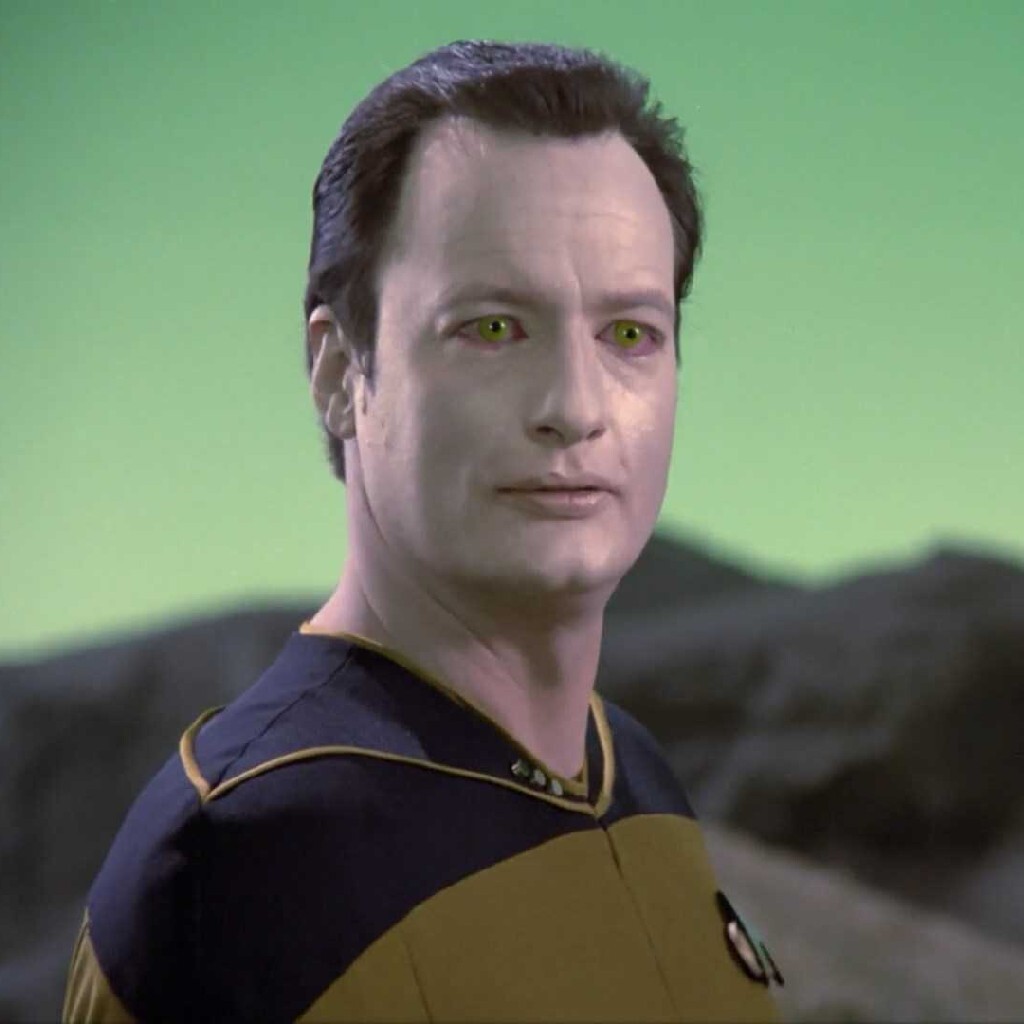For me it is the fact that our blood contains iron. I earlier used to believe the word stood for some ‘organic element’ since I couldn’t accept we had metal flowing through our supposed carbon-based bodies, till I realized that is where the taste and smell of blood comes from.

A day on Venus is longer than a year on Venus. One day takes 243 Earth days, while a year takes 225.
Maybe it’s not “well known”, but still interesting in my opinion.

I mentioned this one to my friends the other day and it took so much convincing before they actually believed me! Definitely an interesting one. Venus also spins the opposite direction to all the other planets in the solar system, meaning the sun rises in the west and sets in the east.

I get people telling me “no, that’s impossible” every time I mention this fact.

“Search your feelings, you know it to be true”

Ok hold up so the way I’m understanding this is that its tilt (day) is slower than it’s rotation around the sun (year). Is that right or am I way off?

You’re close. Not the tilt of its axis, but its rotation around its axis (day) is slower than its rotation around the sun (year).
Earth’s axis is tilted at about 23 degrees, which causes the seasons. Venus, by contrast, is tilted only about 2.6 degrees, and thus basically doesn’t have seasons in a comparable way.
Earth’s axis does very slowly wobble around (precession). Over long enough time scales, this affects the seasons, and it means the North Star has not always been aligned with Earth’s North - once, North pointed at a patch of black sky and the North Star was just another star appearing to rotate around that arbitrary point.
I’d imagine Venus’s axis might also wobble at least somewhat, but I haven’t actually looked into this at all.
Thinking about this sent me down a rabbit hole because the day and year lengths are so extremely close to each other, and Venus rotates around its axis clockwise (unlike the other planets) while spinning around the sun clockwise, and its tilt is so slight… so as it spins around the sun, it rotates just enough to keep one side facing the sun almost all the time. I ended up googling whether it was tidally locked, like the moon is to Earth (such that we only ever see one side and it never changes) - and apparently it would be, but its atmosphere is so wild that it prevents tidal locking. But it almost is. It kinda has a dark side, and a light side, like the moon, but there’s just enough mismatch between the yearly rotation the axial rotation that the side facing the sun changes slowly. This is the first article I found.
From that article, it seems like the daylight hours you’d experience standing on the surface of Venus would be 117 Earth days of light, before it got dark again. So the sun would rise, and then you’d have about half a Venus year (aka about half a Venus day, too) of daylight before you’d see night again. And then it’d be night for the rest of the year. But still scorching hot because atmosphere.
Anyway this is blowing my mind a bit. I feel like I should have known this - I used to be obsessed with astronomy when I was little. Maybe I knew it once and forgot. I don’t know. But dayum. Planets are cool.
I’ve seen this fact somewhere before, but I still am unable to grasp it in my mind

Short: It completes a full 360° of the sun before the planet itself does a full 360° spin.
A few sentences longer:
In planet Earth human terms, we have defined one day as “how long it takes the planet to do a full 360 degree rotation”. Example: You spin a basketball on your finger and it does one full rotation.A year to us is “how long it takes the planet to go around the sun”. Example: You hold a basketball out in front of you and you do one full rotation.

Now, to confuse people further, read about the difference between a solar day and a sidereal day.

Not exactly bizarre, but it’s fun to learn that the delicious fragrance of shrimps and crabs when cooked comes from chitin, and chitin is also why sautéed mushrooms smell/taste like shrimps.
And since fungi are mostly chitin, plants have evolved defenses against fungi by producing enzymes that destroy chitin, which is how some plants eventually evolved the ability to digest insects.
EDIT: a previous version of this post mistakenly confused chitin with keratin (which our fingernails are made of). Thanks to sndrtj for the correction!

Chitin is not produced by mammals.
Fingernails are composed primarily out of keratin (same as hair and skin).

Oops! I stand corrected.

Wow I didn’t know this and I’ve never felt a similarity between seafood and mushrooms either in flavour or smell. But, still a cool fact.

It’s one of those things that feels really obvious if you cook a lot of east/south Asian dishes - shrimp sauce and mushroom soy sauce have a pretty similar aftersmell to them because they’re so concentrated

I’ll be honest, I’m not much into cooking Asian. I’m also not a frequent crustacean eater, but I eat mushrooms regularlish. I’ll pay more attention from now on, but I would have never otherwise thought of making a link between the two

Huh. Oddly I am allergic to shrimp and lobster, but love mushrooms. To me they don’t smell the same though. Though this fact probably explains why veg oyster sauce is mushrooms.

Time relativity always boggles my brain, I accept the fact but I find crazy that if I strap my twin and his atomic clock to a rocket and send them out to the stratosphere at the speed of light, when they return he’ll be younger than me and his clock will be running behind mine. Crazy

It’s even crazier because you don’t need to reach the speed of light. It’ll happen in a smaller degree for any speed. Even in mundane conditions.
For example, if your twin spent four days in a 300km/h bullet train, for you it would be four days plus a second.
Usually this difference is negligible, but for satellites (that run at rather high speeds, for a lot of time, and require precision), if you don’t take time dilation into account they misbehave.
(For anyone wanting to mess with the maths, the formula is Δt’ = Δt / √[1 - v²/c²]. Δt = variation of time for the observer (you), Δt’ = variation of time for the moving entity (your twin), v = the moving entity’s speed, c = speed of light. Just make sure that “v” and “c” use the same units.)

I wonder how long it would have taken for us to figure out time dilation in Einstein hadn’t predicted it. I wonder if it would have taken until we observed it with satellites.

Without Einstein, I think that the discovery of time dilation would be delayed by only a few years. There were a lot of people working in theoretical physics already back then; someone else would inevitably dig through Lorentz’ and Poincaré’s papers, connect the dots, and say “waitaminute time might be relative”. From that, time dilation is a consequence.
In special I wouldn’t doubt that Max Planck would discover it.
I’m saying that because, in both science and engineering, often you see almost concurrent discoveries or developments of the same thing, because the “spirit of a time” makes people look at that aspect of reality or that challenge and work with it. The discovery of helium and the development of aeroplanes are examples of that.

IIRC the orbit of Mercure doesn’t work with Newton Model, and astronomers were predicted the discovery of Vulcain a small planet between Mercure and the Sun. So a new model had to be invented since Vulcain couldn’t be found.

Yes I knew about that and I’m glad that doesn’t make it crazier for me, instead it makes it easier to accept. If it were something that happened only after hitting some arbitrary speed value I’d be a lot more mentally damaged

To be fair the only ones that don’t get mentally damaged at all with this stuff are theoretical physicists. After all being crazy makes you immune to further madness.

The part that I understand in the intellectual sense, because I know or at least used to know how it follows from the math, but which just doesn’t feel like it should be the case, is the whole “relativity of simultaneity” aspect of it. That there isn’t an objectively true order in which events happen in, if the events in question aren’t linked by cause and effect. That is to say, it is possible for one person to see an event A happen before another event B, a second person to see the two happen at exactly the same time, and a third to see event B happen first and then event A, and for all three of them to be equally right. It just feels like, on some level, there ought to be one objectively true order to time, a single valid timeline that all events can be placed in relative to eachother, and for time not to work that way feels so absurd as to not even be able to articulate why the idea feels wrong.

From what I understand, you are always travelling at the speed of light through space/time, but when you move at high speeds through space that shifts the proportion of your speed out of the time dimension. And a photon travels only through space, experiencing no time between the time it was emitted and the time it was absorbed. What I just can’t wrap my head around is the concept of travelling at some speed without involving the time dimension at all.
I wish we could test this out with only simple apparatus. Unfortunately the common people do not have access to satellites or nonstop bullet trains.

Please dont do that

That “I” am pretty much just the construct of electrons flying around my brain.
That you need to lay down K.O. for many hours every day, otherwise you get insane.
That we are always only 2min or so away from death, if we stopped breathing.
That everything I eat actually gets digested into mousse and bacteria are in my body, digest it and I get the elements into my blood.
That our world is so big, but you could also walk to China
Japanfrom the EU, if you had enough time. But also its crazy how huge our common trade routes are.That a weird minicomputer in my pocket can store 128GB of information, access a wireless network from across the whole planet, and can remember so much more than my brain

Walking through the Sea of Japan is a bit of a challenge, though.

Haha okay there is some water thats true.

Duh! Just wait for low tide!

That “I” am pretty much just the construct of electrons flying around my brain.
If you get into mindfulness meditation a little bit, the concept of self in general shifts in really weird ways. Like I know that I am an individual entity in the world, but the sense of an individual actor or driver within my consciousness has faded somewhat. When you recognize that the thoughts or feelings that manifest in consciousness are about as much under your control as whether the wind is blowing or what the people across the room are talking about, it gives you a new perspective on life.

Between Japan and the EU, there is an ocean. You also need to swim, not only walk.

Swimming is walking in water /s

Maybe he plans to wear a weight belt.

Calcium is a metal. We have metal bones.

From Wikipedia on bones:
Bone matrix is 90 to 95% composed of elastic collagen fibers, also known as ossein,[5] and the remainder is ground substance.[6] The elasticity of collagen improves fracture resistance.[7] The matrix is hardened by the binding of inorganic mineral salt, calcium phosphate, in a chemical arrangement known as bone mineral, a form of calcium apatite.[9]
So the statement is a bit faulty, not only because of the relative low amount of calcium in our bones, but also because it appears as a mineral. We distinguish between salts and metals because of their chemical properties being quite different (solubility, reflectiveness, electrical conductivity, maleability and so on).
Edit: I do realize the point of the comment was not to be entirely factual, so if I am allowed as well I would say science is pretty metal.

Thanks for the reality injection!
The statement was glib but even the partial truth of it made me wonder when I first learned it.

Oh my… I refuse to accept this as reality
We’re all organically powered metal meat machines? 😭

In the same sense that we contain a massive volume of gas, because there is a lot of hydrogen in our bodies. Yes, hydrogen is a gas, and yes, there is a lot of it on our body. But it’s bound, so it doesn’t count.
It would be more accurate to call it stone than metal, because the calcium in our bones is also bound to other elements, which means it does not exhibit its usual metal characteristics.


The meat is suffused with more metal throughout it

Nigel?

They sure don’t feel metal.

Let’s stick with the iron in your hemoglobin for some more weirdness. The body knows iron is hard to uptake, so when you bleed a lot under your skin and get a bruise, the body re-uptakes everything it can. Those color changes as the bruise goes away is part of the synthesis of compounds to get the good stuff back into the body, and send the rest away as waste.
In the other direction, coronaviruses can denature the iron from your hemoglobin. So some covid patients end up with terrible oxygen levels because the virus is dumping iron product in the blood, no longer able to take in oxygen. I am a paramedic and didn’t believe this second one either, but on researching it explained to me why these patients were having so much trouble breathing on low concentration oxygen… the oxygen was there, but the transport system had lost the ability to carry it.

The body knows iron is hard to uptake
I had to take iron supplements in the past because my periods were so bad that I would lose my vision and pass out from loss of blood.

I don’t have iron issues so I haven’t completely fact checked this, but I have read in various places that using cast iron skillets to cook with does add more iron to your foods to help supplement.

That is super interesting information and kind of makes sense with the seasoning involved.
But I recently learned you can get different enamel types that you don’t have to season.

I would think an enameled skillet would not provide any extra iron; the glass that the enamel is made of forms a barrier between the iron and everything else. That’s nice because you don’t have to worry about it rusting any more, but it also means no iron in your food.

Yeah, its like a trade off. I’m uneasy about having to season a pan for some reason. I’m pretty sure I have OCD and if I can’t clean a dish the way I clean my other dishes it bugs me to some extent.

You’ll just develop a new ocd about how sexy you can make your cast iron look. They’re the only dishes related thing I enjoy cleaning up.

lmao that’s definitely not how OCD works.

Ah gotcha, I can understand how that might be a thing; cat iron is definitely something you treat differently than other dishes. There’s a whole fascinating level of nerdery to proper seasoning, but it’s definitely special cookware that doesn’t fit the usual patterns.

yeah, for some reason it gets to me that there is something left on the pan on purpose. My brain just wants me to scrub it all off.

Before using cast iron daily, when I donated blood my iron levels were regularly at the lowest allowable limit or sometimes too low to donate. Once I started cooking with cast iron, I started getting comments about how great my iron levels are every time I donate.

There is about 8.1 billion people in the world. Assuming romantic cliches to be true and that we all have exactly one soulmate out there, we would have a very hard time sifting them out. If you were to use exactly one second at meeting a person it would take you 257 years to meet everyone alive on earth at this moment, which due to human life span being significantly shorter and the influx of new people makes the task essentially impossible without a spoonful of luck. Moral of the story: If you believe you have found your soul mate, be extra kind to them today.

Soul mates are made, not found. You get with someone compatible to you, and through the sharing of experiences and affection, if nothing goes excessively wrong, they become unique for you.

Soul mates are made, not found. You get with someone compatible to you
That catch is, you need to find that someone in the first place, and that takes a bit of looking around. So in effect, soul mates are found.

You find a partner, who then MAY become a soul mate

It gets much easier once you factor in that you, yourself, aren’t static and constant. The task isn’t to find someone capable of becoming perfect for you, it’s finding someone whose compatibility and willingness when taken into account with your own offers a fair chance to grow into a symbiotic relationship.

Definitely agree and beautifully put :)

Well said!

it would take you 257 years to meet everyone alive on earth at this moment
Sounds like a terrible sorting algorithm /jk

If you were to use exactly one second at meeting a person it would take you 257 years to meet everyone alive on earth at this moment
Well I don’t need to meet everybody. There’s no need to meet anyone who doesn’t match my sexual preferences, so that’s half right there. Then we can also cut everyone who’s sexual preferences I don’t meet, as well as anyone outside of a given age range (most of the people on earth are much younger than me and would be inappropriate for me to date). We can probably get that down to about 50-60 years. (At one second per person).

The thought experiment was just an attempt to show how hard it is to wrap our minds around big numbers. Even a tangible number such as the amount of people in the world.

there’s people that don’t like music.

I used to be like this, but with movies. When I first met my wife, she was utterly baffled at the concept of somebody not enjoying movies, and she made it her mission to make me enjoy them.
Come to think of it, she actually doesn’t like music much. I’ve failed to change her opinion on that though because my taste in music is shit (and I’m proud of it.)
As a person who was born liking music, I indeed find it too bizarre to believe to be true.

The sun could’ve gone nova 8 minutes ago and we wouldn’t know for another 20 seconds or so.
Interesting fact: the sun becomes 1 million tons lighter every second.

Diet specialists hate this trick.

Lighter or brighter?

Well, we’d know by now

There’s no such thing as tides. Gravity holds the water as the earth rotates

You mean in the same way that there is no centrifugal force?
Technically right, but doesn’t matter if you are in the rotating frame of reference.

But aren’t the tides caused by external gravitational forces (the moon?)

They’re saying the same thing, just backwards.

Tides are a phenomenon where the height of the edge of a body of water shifts relative to the shore. A phenomenon is a thing. Why should explaining its cause in those terms have any effect on that?

I’m confused: you say there’s no such thing as tides, and then explain what tides are?

Alaska is simultaneously the northernmost, westernmost, and easternmost US state.
What would happen if you were to put both of yours legs in these westernmost and the easternmost parts?

Your legs would glitch around the whole circumference of the Earth.

You would have both legs in Alaska.

The hell that giving birth can be.
A lot of women endure having a baby…and holy. shit. No.

Their bodies produce chemicals that cause them to forget how bad childbirth was.
I suppose it is for the best, but nonetheless I find it uncomfortable how our bodies have the ability to manipulate our brains’ memories and our consciousness residing in the same place cannot do anything about it

Oh, it’s worse than that, the consciousness is in on it.

I always thought it interesting that every time we talk about when our kids were born, I remember all these details and my wife’s like huh, weird, can’t remember a thing.

The hormones really carry you through. Lol. And at least it’s relatively short with a positive end goal.

Every time that comes up, I think to myself “Something I’ve gone through must be more painful, right? I’ve gone through some pretty hellish things, and you’re trying to tell me something MORE painful exists? Not just a little more, but dramatically more? For my own sanity, I’m gonna have to live in denial of that.”

The USA has 157 million workers, shuffling 140,000 years of work a day. One in 4 has an idea. One in five of those is a good idea. Two thousand stakeholders can make it an innovative idea. So, they can pump 3.5 years of brute force innovation into the world every single day. That’s well over a thousand years of advancement per year.
Critical mass populations that can keep up with their own development are a serious creative force to be reckoned with. And human evolution has been exceeded by innovation, dramatically.

But thousands of years of experience die off every day too.

Women have orgasms

Your asswhole can stretch up to 8 inches without permanent deformation.
Also an adult raccoon can fit into a 4.5 inch hole.
Do with that info as you wish

Well, ill be having a fun evening.

Asswhole… lol
